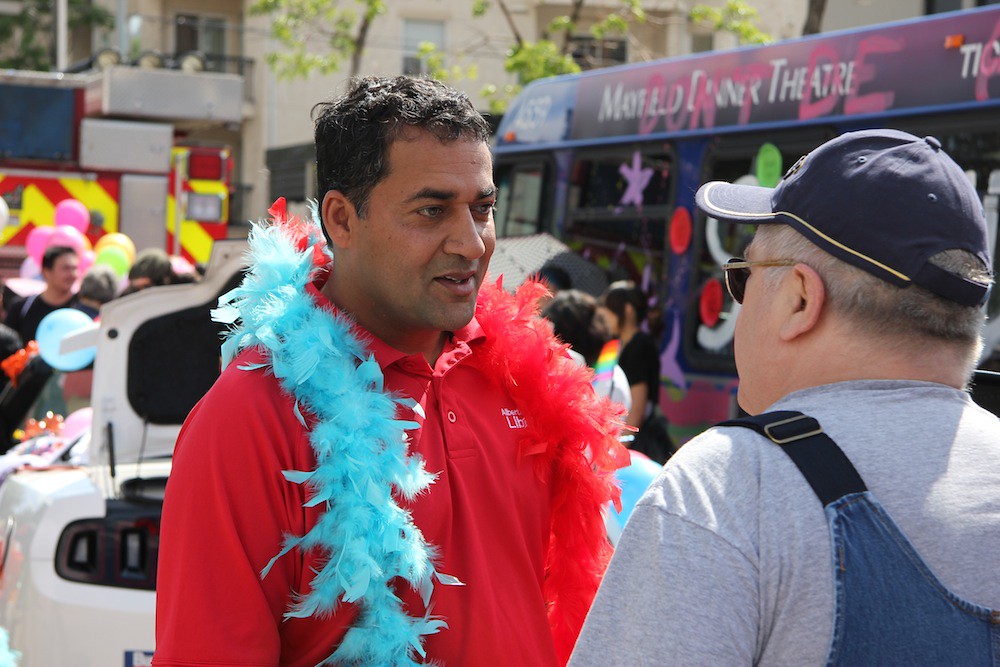“This Leadership Race is an exciting opportunity to build our party, debate ideas, discuss strategy and reach out to Albertans,” wrote Alberta Liberal Party president Helen Mcmenamin in a June 13 statement on the party website.
“They are looking for leadership they can trust to tackle the issues of today and the challenges of tomorrow.”
Albertans might be looking for leadership to tackle the issues of today and the challenges of tomorrow but they won’t find it from the Alberta Liberal Party, at least not right now.
Last Friday’s 5:00 p.m. deadline for candidates to enter the leadership race came and went without any announcement. Anyone who was watching assumed there were just no candidates in the race.
That proved to be the case.
Mcmenamin issued another statement yesterday.
“As no candidates have stepped forward the Leadership race has concluded with no permanent Leader being selected,” she wrote.
It’s a blow to an already much diminished political party.
It’s not something I take pleasure writing about. It’s actually kind of sad.
Some current and former Liberal activists I’ve reached out to over the past few days point to in-fighting and a party executive controlled by a small group of people. Some say the current group is too loyal to the former leader and not open to new ideas. Some say they will just appoint a new interim leader of their choice.
The smaller the stakes the bigger the fight, right?
The Liberals have no MLAs and got less than 1 per cent of the province-wide vote in 2019.
That’s the party’s worst result since 1940, and even then they managed to elect 1 MLA.
They have struggled raising money and have been without a permanent leader since David Khan resigned in 2020.
Being leader of the Alberta Liberal party right now is not even a thankless job, it’s whatever the next level is after thankless.
And the party has really been without a purpose for a while.
It wasn’t too long ago that the Liberal Party formed the Official Opposition in Alberta. This was the party of Nick Taylor, Laurence Decore, Grant Mitchell and Kevin Taft. And it’s MLAs included Bettie Hewes, Sheldon Chumir, Mike Percy, Gary Dickson, Frank Bruseker, Howard Sapers and Laurie Blakeman – people who’s impact on politics is still felt today.
The space occupied by the Liberals shifted quite a bit over the decades.
Decore’s Liberals witnessed the party’s greatest success in 75 years when it came within a whisker of forming government in 1993. A record 32 Liberal MLAs formed the largest official opposition in Alberta history.
But an informal alliance with socially conservative Reform Party activists and its deficit hawk policies made for an awkward transition to an opponent of some of those same policies when they were implemented by Klein in the mid-1990s.
The party recalibrated under Mitchell in 1997 and was able to hold on to its seats in Edmonton, but 2001 represented a major blow when the party then led by Klein rival Nancy MacBeth was reduced to 7 MLAs and saddled with a million dollar debt.
The party rebounded under Kevin Taft’s leadership in 2004 when they regained much of their support in Edmonton and made important breakthroughs in Calgary.
Albertans were tiring of Klein and shopping around.
Despite winning an important by-election in Calgary-Elbow in 2007, the Liberals lost a lot of ground when facing Ed Stelmach’s PCs in 2008. It turned out the PCs brilliant “Change that works for Albertans” message did a better job of capturing the Obama-theme than “It’s Time.”
It was all downhill for the Liberals after that election.
By this point the Alberta Liberal Party had become less of a cohesive political party and more a coalition of independent-minded and locally popular MLAs.
Former PC MLA turned Liberal leader Raj Sherman was squeezed out of 2012’s two way race between Alison Redford’s PCs and Danielle Smith’s Wildrose.
Liberal voters flocked to the PC Party.
Then they flocked to the NDP in Orange Wave of 2015.
Party leader David Swann survived on the strength of his personal popularity but the Liberals were washed out.
And today any political territory the Liberal Party once occupied is now held by Rachel Notley’s NDP and, to a much lesser extent, the Alberta Party.
It’s hard to point to any laws or policies passed by Notley’s NDP in government and now proposed in opposition that would be meaningfully different from what the Liberals (and in some cases from the old PCs) would do.
And most federal Liberals in Alberta are supporting Notley or have abandoned provincial politics entirely.
It’s difficult to see how the Liberals can dig themselves out of their current hole, at least in the foreseeable future.
Maybe they are waiting for the NDP to collapse?
They might have to wait a while and every day they wait they sink into further irrelevance.
The Liberals are in the wilderness now.
Note: I was a member of the Alberta Liberal Party from 1999 to 2009. I sat on constituency association boards, I organized fundraisers, I knocked on a lot of doors, and worked for the party in various roles, including as Communications Coordinator from 2006 to 2008. During the 2008 election I worked with a group of MLAs and former cabinet ministers who were preparing the Liberal Party’s transition plan to form government (we were nothing if not optimistic).




























